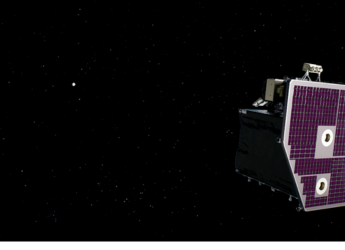- Home
- Science
- Science News
- Toba Supervolcanic Eruption Might Not Have Nearly Wiped Out Humanity, Study Finds
Toba Supervolcanic Eruption Might Not Have Nearly Wiped Out Humanity, Study Finds
The study, published by Nature Communications, analyses the tools used before and after the eruption

Photo Credit: Nature Communications
Key artifacts that were analysed for this study
Ancient tools that were discovered in Madhya Pradesh's Dhaba have led scientists to believe that the Toba supervolcanic eruption, which took place about 74,000 years ago in what is now modern Sumatra, did not actually bring humanity to the brink of extinction, as was previously believed. A Nature Communications study found that the ancient tools that appear in the sediment date to between 80,000 and 65,000 years ago. It says that the same type of tools continued to be used before, and after, the eruption, hence the researchers assert that the population must have survived the fallout from the Toba eruption.
The Nature Communications study also says that the tools found in Dhaba match tools used in Africa, Australia and the Arabian Peninsula, dating back to between 285,000 to 50,000 years ago. Given the similarities of these tools, the scientists suggest that the site now offers more evidence of Homo sapiens moving out of Africa earlier than previously believed.
The study, based on the span in time of stone tools used and manufactured in prehistoric India, which seem to have been unaffected by the purported super-eruption. It says that the aftermath did not stop early humans from surviving in Central India.
"The big theory was that the Toba supereruption created a volcanic winter, which led to glaciation, it resculpted ecosystems and had tremendous impact on the atmosphere and landscapes," Micheal Pertaglia, an anthropologist at the Max Planck Institute for the Science of Human History was quoted by National Geographic as saying.
About 74,000 years ago, the Toba supervolcanic eruption on the Indonesian island of Sumatra, the largest in the last two million years, and, it was believed, nearly wiped out humans. The eruption scattered ash thousands of miles and left behind a 60-mile-wide crater that has since filled with water.
The new study, however, provides further evidence against the popular belief that the supervolcanic eruption might have nearly wiped off humanity.
For details of the latest launches and news from Samsung, Xiaomi, Realme, OnePlus, Oppo and other companies at the Mobile World Congress in Barcelona, visit our MWC 2026 hub.
Related Stories
- Samsung Galaxy Unpacked 2026
- iPhone 17 Pro Max
- ChatGPT
- iOS 26
- Laptop Under 50000
- Smartwatch Under 10000
- Apple Vision Pro
- Oneplus 12
- OnePlus Nord CE 3 Lite 5G
- iPhone 13
- Xiaomi 14 Pro
- Oppo Find N3
- Tecno Spark Go (2023)
- Realme V30
- Best Phones Under 25000
- Samsung Galaxy S24 Series
- Cryptocurrency
- iQoo 12
- Samsung Galaxy S24 Ultra
- Giottus
- Samsung Galaxy Z Flip 5
- Apple 'Scary Fast'
- Housefull 5
- GoPro Hero 12 Black Review
- Invincible Season 2
- JioGlass
- HD Ready TV
- Latest Mobile Phones
- Compare Phones
- Vivo X300 FE
- Tecno Pop X
- Apple iPhone 17e
- AI+ Pulse 2
- Motorola Razr Fold
- Honor Magic V6
- Leica Leitzphone
- Samsung Galaxy S26+
- MacBook Neo
- MacBook Pro 16-Inch (M5 Max, 2026)
- Tecno Megapad 2
- Apple iPad Air 13-Inch (2026) Wi-Fi + Cellular
- Tecno Watch GT 1S
- Huawei Watch GT Runner 2
- Xiaomi QLED TV X Pro 75
- Haier H5E Series
- Asus ROG Ally
- Nintendo Switch Lite
- Haier 1.6 Ton 5 Star Inverter Split AC (HSU19G-MZAID5BN-INV)
- Haier 1.6 Ton 5 Star Inverter Split AC (HSU19G-MZAIM5BN-INV)

















